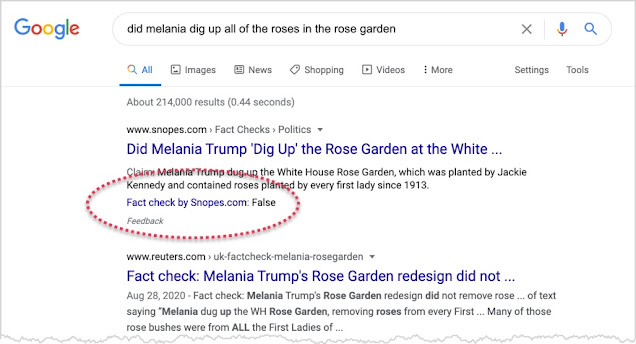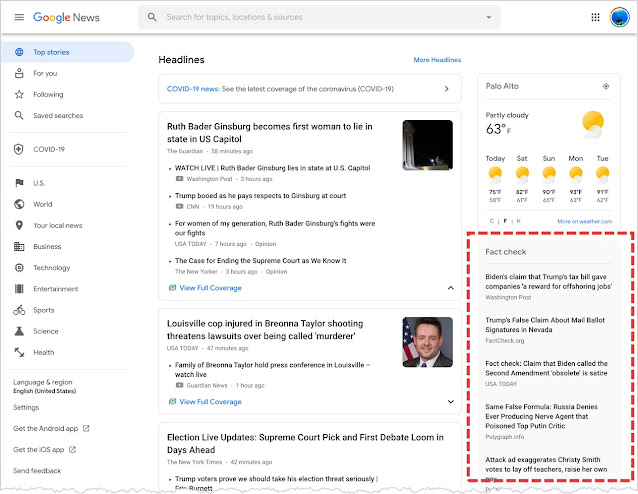A bit more on fact-checking…
Google puts in a fair bit of effort to surface fact-check information in the results. As you search, be sure to pay attention to the fact-check labels as they’re put on the page to evaluate questionable information. You can read the original Google blog post about it here.
Here’s an example of an Image search for the mythical [ black lion ]. Note the red dashed oval I added to the screengrab. Google adds in the “Fact check from AFP Fact Check” (which is one of the partners who verify such things).
This label appears in regular Web Search, News Search, and Image Search. These fact checks and labels come from vetted publishers that use the ClaimReview schema (a way for fact-checkers to annotate content that’s clearly questionable) to mark up fact checks on stories and images.
Here are some examples of fact-check labels when they appear. Since they’re sometimes not obvious, I’ve highlighted them so you’ll spot them next time you run across one in your searching.
Note that News.Google.com has a fact-checking section all the time. (See below–the red dashed box.)
I also want to point out that Bing does a nice job of making their fact-checks very visible. Here, I added the red-dashed-oval, but the red False typography is Bing’s.
While we’re talking about fact-checking… I actually much prefer to call this kind of thing “verification,” since the term “fact-checking” presupposes that the assertion you’re trying to validate already is correct. That is, after all, what a “fact” is—an assertion that is assumed to be correct. “Facts” are mostly things that you don’t check. Instead, we verify assertions.
That is, verification is the process of testing each assertion for its validity. “The Earth is sphere-like.” That’s a fact. By contrast consider “The Earth is a large disc floating in space.” That’s an assertion you probably want to verify, especially since it conflicts with everything else you know about planets floating in space. Going forward, I’ll talk about verfication rather than “fact-checking,” even though I know it’s an uphill battle.
But this reminds me that I’m not alone in this quixotic quest: A great handbook on verification can be found at the DataJournalism.com site (the Verification Handbook, download for free).
Search on!
(With care and your verification lenses fully engaged.)








